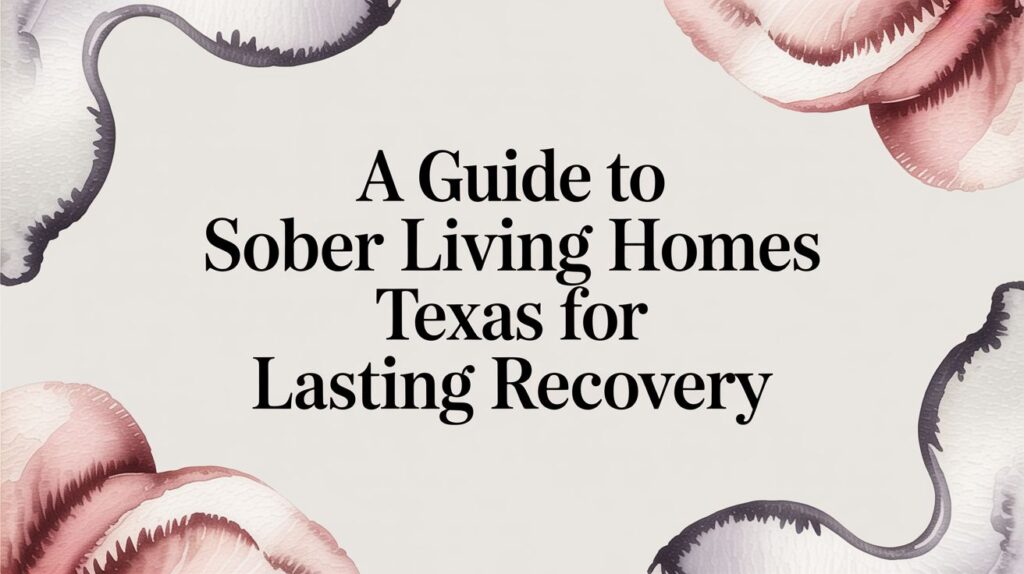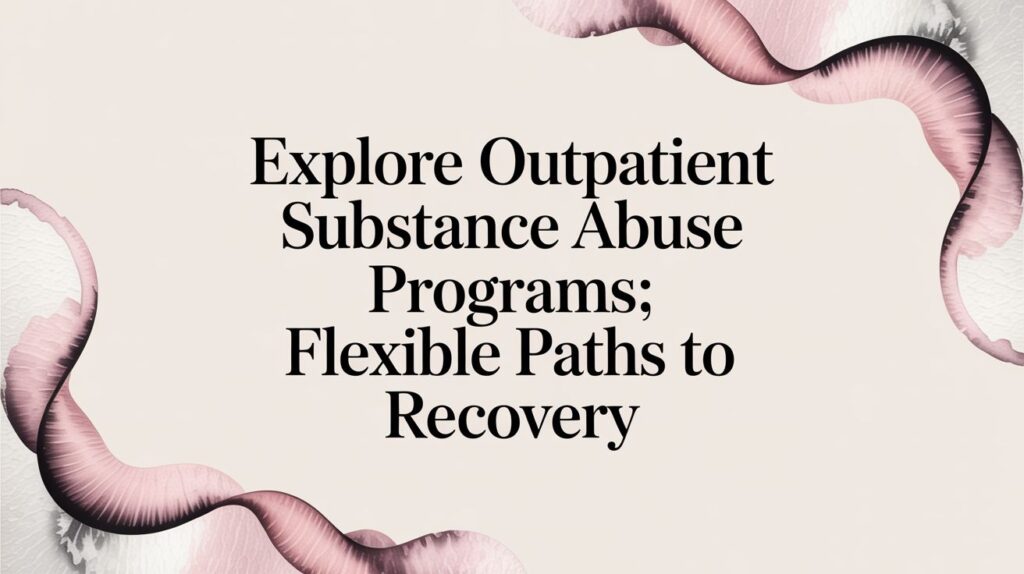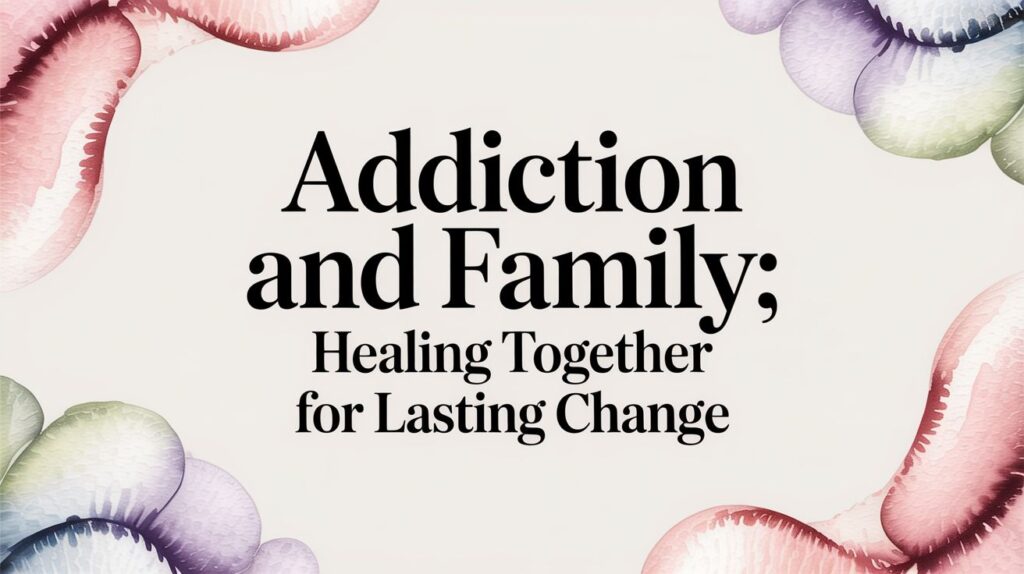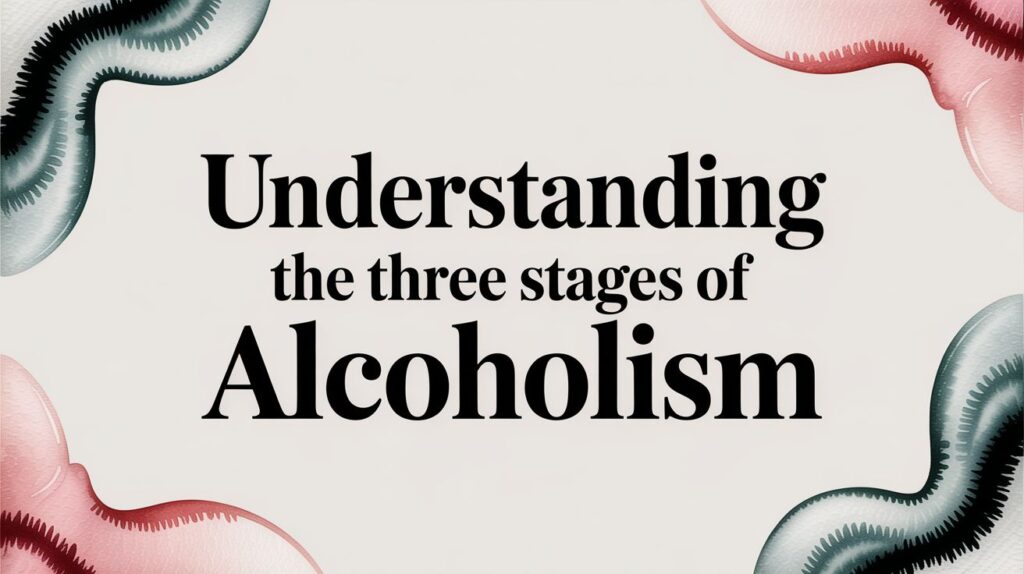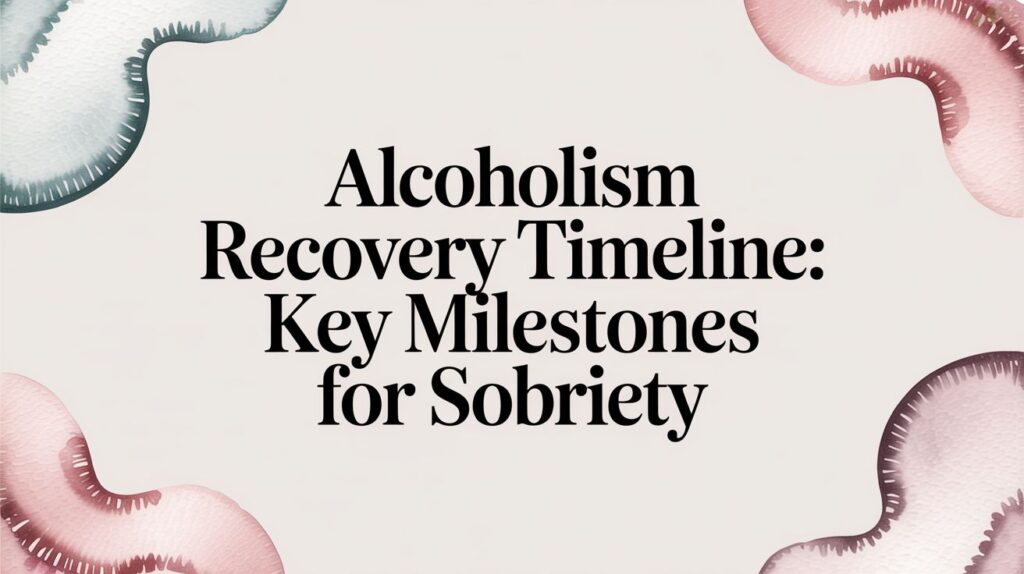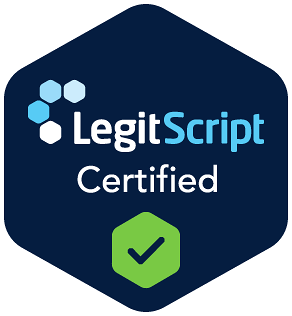Group therapy is a cornerstone of effective addiction treatment, providing a safe space for shared experiences, mutual support, and profound growth. However, the true power of these sessions lies in the topics discussed. The right conversations can illuminate the path to lasting sobriety, while generic discussions can leave participants feeling unheard and uninspired. A session's focus directly impacts its effectiveness, making the selection of relevant group topics for addiction recovery a critical component of the healing process.
This guide dives into seven essential topics designed to foster connection, build practical skills, and address the core challenges of rebuilding a life free from substance use. Readers will gain actionable insights and specific discussion prompts for each theme, from identifying personal triggers to navigating the complexities of relationships and shame. These topics provide a structured roadmap for meaningful group work that empowers individuals to achieve real, sustainable healing.
Exploring these subjects helps participants develop the resilience needed for long-term success. By moving beyond surface-level conversation, groups can unlock deeper understanding and equip members with the tools necessary to manage stress, rebuild trust, and find new purpose. This list provides the framework for transformative discussions that are vital to a strong recovery foundation.
1. Identifying Personal Triggers and Developing Coping Strategies
Understanding and managing personal triggers is a cornerstone of sustainable recovery. This foundational topic helps group members identify the specific people, places, emotions, and situations that can provoke cravings and increase the risk of relapse. By creating a safe space to explore these vulnerabilities, the group can collaboratively build a robust toolkit of personalized coping strategies.
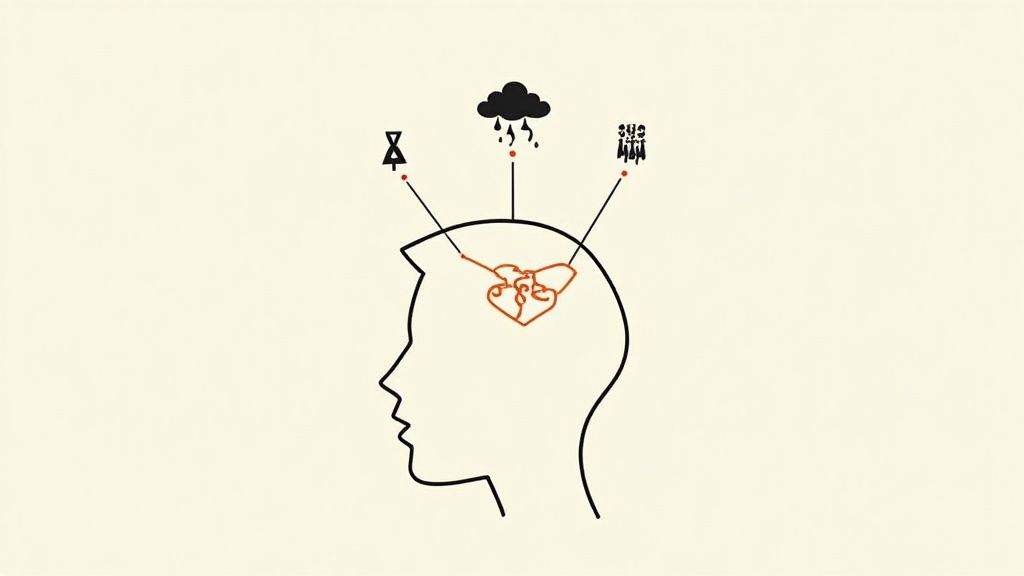
The discussion typically separates triggers into two categories: internal (like stress, anxiety, or loneliness) and external (such as specific social events, locations, or even certain times of day). This distinction helps members recognize that threats to sobriety can come from both their environment and their own emotional state, making it a crucial topic for anyone in recovery, especially those with co-occurring mental health disorders.
Objectives and Facilitation Tips
A facilitator's goal is to guide the group from simple identification to proactive planning. The conversation isn't just about listing dangers; it's about developing a concrete, actionable plan to navigate them successfully. This is one of the most effective group topics for addiction recovery because it empowers individuals with a sense of agency over their sobriety.
Actionable Tips for Facilitators:
- Start with Shared Experiences: Begin by discussing common, less intense triggers to build comfort and rapport before moving to more personal and sensitive ones.
- Use Visual Tools: Create a "trigger map" on a whiteboard, connecting triggers to potential coping mechanisms. Members can also create personal coping skills cards to carry with them.
- Role-Play Scenarios: Practice using coping strategies in a supportive group setting. For example, role-play how to decline a drink at a party or manage a stressful conversation.
- Incorporate Proven Frameworks: Introduce established models like AA's HALT (Hungry, Angry, Lonely, Tired) to help members quickly assess their internal state and recognize vulnerability.
By focusing on this topic early and often, groups provide members with the essential skills needed to build resilience. As individuals progress in their journey, they can continuously refine their strategies, adapting to new challenges as they arise. For a deeper dive into practical techniques, you can find a comprehensive list of coping skills for substance abuse and how to apply them effectively in daily life.
2. Building and Maintaining Healthy Relationships in Recovery
Addiction often damages the most important connections in a person's life, making relationship repair a critical component of lasting sobriety. This topic guides group members through the complexities of rebuilding trust with loved ones while simultaneously learning to forge new, healthy, and supportive relationships. It provides a safe environment to address past harms and develop the interpersonal skills needed for a sober social life.
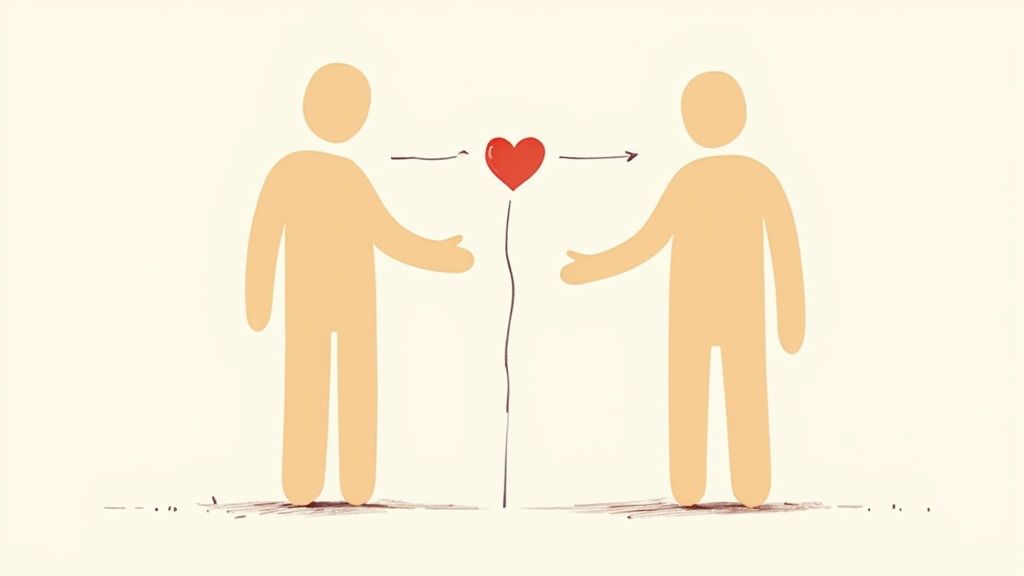
The discussion often covers two distinct areas: repairing existing relationships (with family, partners, and friends) and building a new sober network. This dual focus acknowledges that recovery requires both mending past wounds and creating a future social environment that reinforces sobriety. This makes it an essential conversation for individuals feeling isolated or struggling to navigate social dynamics without substances.
Objectives and Facilitation Tips
A facilitator’s role is to help members move from guilt and regret to proactive communication and boundary setting. The goal isn't just to apologize for past behaviors but to develop the skills to foster genuine, supportive connections moving forward. This is one of the most powerful group topics for addiction recovery as it directly addresses the social and emotional foundations necessary for a fulfilling, substance-free life.
Actionable Tips for Facilitators:
- Prioritize the Self-Relationship: Encourage members to first focus on their relationship with themselves, exploring self-compassion and self-forgiveness before tackling external relationships.
- Role-Play Communication: Use the group setting to practice difficult conversations, such as setting boundaries with friends who still use or expressing needs to a family member.
- Set Realistic Expectations: Discuss the importance of patience in rebuilding trust, emphasizing that repairing relationships is a gradual process that cannot be rushed.
- Introduce Healthy Relationship Models: Explore frameworks like Behavioral Couples Therapy (BCT), developed by specialists like Dr. Timothy O'Farrell, to provide concrete examples of healthy interaction.
By addressing relationships head-on, the group empowers members to break cycles of codependency and isolation. They learn to identify supportive allies and distance themselves from dynamics that threaten their progress. For those seeking to mend these critical connections, you can explore more about how recovery and relationships intersect and how to manage them.
3. Managing Shame, Guilt, and Self-Forgiveness
Addressing the powerful emotions of shame and guilt is a transformative step in the recovery journey. This emotionally intensive topic helps group members differentiate between healthy guilt, which signals a misalignment with one's values, and toxic shame, which fosters a belief of being inherently flawed. By creating a compassionate environment, the group can begin to dismantle the shame that often perpetuates addictive cycles and develop healthier self-narratives.

The discussion focuses on how shame drives secrecy and isolation, while guilt can motivate positive change and amends. This distinction, popularized by researchers like Dr. Brené Brown and authors like John Bradshaw, is critical. It allows individuals to see that their past actions do not define their worth, making this one of the most profound group topics for addiction recovery for fostering long-term emotional healing.
Objectives and Facilitation Tips
A facilitator’s role is to guide the group from acknowledging these painful feelings to cultivating self-compassion and forgiveness. The objective is not to erase past mistakes but to reframe them as learning experiences and release the debilitating weight of shame. The group setting is uniquely powerful for this work, as shared vulnerability helps normalize these feelings and combat the isolation shame creates.
Actionable Tips for Facilitators:
- Create Extra Safety Measures: Begin the session by establishing clear group norms for non-judgment and empathy. Remind members they only need to share what feels safe.
- Use Grounding Techniques: When discussions become overwhelming, pause and lead the group in grounding exercises, such as deep breathing or a 5-4-3-2-1 sensory check.
- Introduce Self-Compassion Practices: Incorporate concepts from Dr. Kristin Neff, such as mindful self-compassion breaks, to help members offer themselves kindness in moments of pain.
- Encourage Journaling: Suggest that members use journaling between sessions to continue processing their feelings about shame and guilt, or to write letters to themselves they do not have to share.
By carefully navigating this topic, groups can help members break free from the paralyzing grip of shame and build a foundation of self-acceptance. This process is essential for healing the underlying wounds that often contribute to substance use and for building the emotional resilience needed for a fulfilling life in recovery.
4. Developing Purpose and Meaning in Life Without Substances
One of the most profound challenges in recovery is rediscovering a sense of identity and purpose outside of substance use. This forward-looking topic guides group members to explore their core values, passions, and aspirations, shifting the focus from simply avoiding substances to actively building a fulfilling, meaningful life. It helps answer the critical question, "What am I living for now?"

The discussion is rooted in principles of logotherapy, popularized by Viktor Frankl, which emphasizes the human drive for meaning. In a recovery context, this involves helping individuals reconnect with or discover new sources of joy, connection, and accomplishment. This exploration is vital for long-term motivation and helps create a strong "sober self" that is more resilient than the identity tied to addiction.
Objectives and Facilitation Tips
The facilitator’s role is to create an environment of hopeful exploration, encouraging members to envision a future they are excited about. The goal is not to have all the answers but to start a journey of self-discovery and goal-setting. This is one of the most empowering group topics for addiction recovery because it transforms sobriety from an act of restriction into an opportunity for growth and fulfillment.
Actionable Tips for Facilitators:
- Start with Values Clarification: Use exercises to help members identify their top personal values (e.g., honesty, creativity, connection). Discuss how their recovery aligns with living out these values.
- Encourage Small, Achievable Goals: Help members break down larger aspirations into small, manageable steps to build momentum and self-efficacy. Celebrate these small wins as a group.
- Focus on Exploration, Not Commitment: In early recovery, encourage experimentation with new hobbies, volunteer work, or educational pursuits without pressure. The goal is to discover what resonates.
- Incorporate Proven Frameworks: Introduce concepts like SMART Recovery's values and goals worksheets or LifeRing's focus on building a 'sober self' to provide a structured approach to this personal exploration.
By concentrating on purpose, the group helps individuals build a compelling reason to maintain their recovery. This internal motivation becomes a powerful anchor, providing stability and direction long after the initial challenges of sobriety have passed.
5. Handling Stress and Emotional Regulation Without Substances
Learning to manage stress and regulate emotions without resorting to substances is a critical life skill for long-term sobriety. This topic focuses on helping group members develop healthy, effective alternatives for coping with life’s inevitable challenges. By exploring various stress management techniques and emotional regulation strategies, the group collaboratively builds a practical toolkit for navigating difficult situations while protecting their recovery.
The discussion often introduces evidence-based approaches like Mindfulness-Based Relapse Prevention (MBRP) and skills from Dialectical Behavior Therapy (DBT). These frameworks teach individuals to observe their emotions without judgment, tolerate distress, and respond thoughtfully rather than reacting impulsively. This topic is vital because many individuals began using substances as a way to self-medicate or escape overwhelming feelings, making it one of the most practical group topics for addiction recovery.
Objectives and Facilitation Tips
A facilitator’s role is to shift the group’s focus from a reactive mindset to a proactive one. The objective isn't just to survive stressful moments but to build emotional resilience that reduces their intensity over time. This empowers members to handle triggers and emotional spikes with confidence, knowing they have effective tools at their disposal.
Actionable Tips for Facilitators:
- Introduce and Practice Techniques: Dedicate time in the group to actively practice skills like deep breathing exercises, grounding techniques (e.g., the 5-4-3-2-1 method), or short guided meditations.
- Create Personalized Plans: Encourage members to create a "Stress Management Plan" that outlines their top three stressors and specific, healthy coping skills for each.
- Discuss Early Warning Signs: Help members identify the physical and emotional cues that signal rising stress levels (e.g., clenched jaw, irritability) so they can intervene early.
- Incorporate Psychoeducation: Explain the physiological connection between stress and cravings, helping members understand the "why" behind their emotional responses.
By consistently working on emotional regulation, individuals learn that they can navigate discomfort without substances. This skill transforms their relationship with their emotions, turning a major vulnerability into a source of strength. For those interested in a structured approach, DBT skills groups in addiction treatment offer an in-depth curriculum on these essential life skills.
6. Addressing Underlying Mental Health Issues and Dual Diagnosis
Recognizing the deep connection between addiction and mental health is critical for comprehensive healing. This essential topic explores dual diagnosis, where a substance use disorder co-occurs with conditions like depression, anxiety, trauma (PTSD), or bipolar disorder. In a group setting, members can safely discuss how their mental health symptoms and substance use influence one another, often creating a cycle that is difficult to break without integrated care.
The discussion focuses on how individuals may have turned to substances to self-medicate underlying emotional pain or psychiatric symptoms. Conversely, substance abuse can create or worsen mental health conditions. By addressing both simultaneously, the group helps dismantle the stigma associated with mental illness and promotes a holistic approach to wellness, making it one of the most impactful group topics for addiction recovery.
Objectives and Facilitation Tips
The primary goal is to help members understand that addiction and mental health are not separate issues but intertwined challenges that require a unified treatment strategy. The facilitator guides the group toward accepting their dual diagnosis and developing skills to manage both conditions concurrently, rather than one after the other. This integrated approach is proven to lead to better long-term outcomes.
Actionable Tips for Facilitators:
- Educate on the Connection: Use psychoeducational materials to explain how specific mental health conditions can fuel substance use and vice-versa.
- Coordinate Professional Care: Emphasize the importance of professional psychiatric assessment and encourage members to work with therapists and doctors to manage medication and therapy.
- Introduce Integrated Models: Discuss evidence-based approaches like the Seeking Safety protocol, which addresses trauma and substance use together, or the principles of Integrated Dual Disorder Treatment (IDDT).
- Use Person-First Language: Foster a non-judgmental environment by modeling language that separates the person from their diagnosis (e.g., "a person with schizophrenia" instead of "a schizophrenic").
This topic empowers individuals by validating their complex experiences and providing a clear path forward. When members learn to manage their mental health without relying on substances, they build a more resilient and stable foundation for their sobriety. For those wanting to understand this model more deeply, you can explore the benefits of integrated dual diagnosis treatment and how it effectively supports recovery.
7. Rebuilding Trust and Making Amends
Accountability is a powerful catalyst for change, and this topic directly addresses the relational harm often caused by active addiction. It guides group members through the challenging but necessary process of acknowledging past wrongs, understanding their impact, and taking meaningful action to repair damaged relationships. This discussion provides a structured framework for making amends, which is a cornerstone of many recovery programs.
The group explores the critical difference between a simple apology ("I'm sorry") and a true amend, which is a sincere effort to change behavior and make things right. This topic helps members move from guilt and shame toward proactive, healing actions. It acknowledges that rebuilding trust is a slow process built on consistent, trustworthy behavior over time, making it one of the most transformative group topics for addiction recovery.
Objectives and Facilitation Tips
The facilitator's primary goal is to help participants prepare for making amends in a thoughtful, safe, and effective manner. The focus is on readiness, sincerity, and understanding that the outcome is not always within their control. The session aims to equip individuals with the emotional tools to handle various responses, from forgiveness to rejection, without compromising their own recovery.
Actionable Tips for Facilitators:
- Differentiate Apology vs. Amend: Use a whiteboard to list the characteristics of each. An apology is words; an amend is changed behavior and action. Discuss examples like AA's Steps 8 and 9.
- Develop a Concrete Plan: Guide members to identify one relationship to focus on first. Have them write down the specific harm caused and brainstorm tangible actions they can take to make amends.
- Role-Play Difficult Conversations: Practice how to initiate a conversation about amends. This helps members manage their expectations and communicate their intentions clearly without making excuses for past behavior.
- Discuss Acceptance and Boundaries: Emphasize that the other person is not obligated to forgive or accept the amend. This is a crucial moment to connect the process of amends with the need for healthy personal limits. For additional guidance, read about setting boundaries in recovery to better understand how to protect your journey.
By methodically working through this process in a supportive group, individuals learn to take responsibility for their past while building a future based on integrity and respect. This difficult work is essential for long-term healing, not just for the individual in recovery, but for the family and friends affected by their addiction.
7 Key Group Topics Comparison
| Topic | Implementation Complexity 🔄 | Resource Requirements ⚡ | Expected Outcomes 📊 | Ideal Use Cases 💡 | Key Advantages ⭐ |
|---|---|---|---|---|---|
| Identifying Personal Triggers and Developing Coping Strategies | Moderate: interactive exercises, role-play | Moderate: facilitator-led, visual aids | Increased self-awareness, practical coping skills | Early to mid recovery; relapse prevention | Builds self-awareness and practical coping toolkits |
| Building and Maintaining Healthy Relationships in Recovery | Moderate to High: role-play, boundary setting | Moderate: skilled facilitation required | Improved communication, restored or new sober relationships | After initial stabilization; interpersonal focus | Enhances social support, addresses isolation |
| Managing Shame, Guilt, and Self-Forgiveness | High: emotionally intensive, requires skilled facilitation | High: trained facilitators, emotional support | Reduced toxic shame, improved self-esteem and forgiveness | Individuals confronting deep emotional barriers | Addresses core emotional drivers, builds self-compassion |
| Developing Purpose and Meaning in Life Without Substances | Moderate: goal-setting, values exercises | Low to Moderate: group facilitation | Increased motivation, life satisfaction, future orientation | Mid to late recovery; identity and purpose exploration | Inspires hope, fosters long-term engagement |
| Handling Stress and Emotional Regulation Without Substances | Moderate: mindfulness, cognitive techniques | Moderate: ongoing practice and guidance | Better stress management, emotional stability | Throughout recovery; for managing triggers and stress | Practical tools for daily emotional regulation |
| Addressing Underlying Mental Health Issues and Dual Diagnosis | High: complex integration of mental health and addiction treatment | High: clinical expertise and coordination | Improved outcomes, reduced stigma, integrated care | Co-occurring disorders; dual diagnosis treatment | Addresses root causes, validates complex recovery needs |
| Rebuilding Trust and Making Amends | Moderate to High: requires reflection, planning | Moderate: skilled facilitation and support | Increased accountability, repaired relationships (if possible) | Later recovery stages; accountability and relationship repair | Facilitates healing and accountability |
Integrating These Topics into Your Recovery Journey
The path to lasting recovery is not a passive experience; it is an active, dynamic journey built upon a foundation of shared understanding and mutual support. The diverse array of group topics for addiction recovery explored in this article, from identifying personal triggers to rebuilding trust, are more than just discussion points. They are the essential building blocks for a resilient, substance-free life. Engaging with these themes in a group setting transforms abstract concepts into tangible skills and deeply personal insights.
By dissecting the mechanics of triggers, you reclaim power over your environment and your reactions. In discussing healthy relationships, you learn to set boundaries and cultivate connections that nurture your sobriety rather than threaten it. This structured exploration provides a comprehensive toolkit, equipping you to navigate the complexities of life with confidence and self-awareness.
From Discussion to Action: Building a Resilient Future
The true value of these group topics lies in their application. It's one thing to talk about managing guilt; it's another to practice self-forgiveness when you feel its weight. It's helpful to discuss emotional regulation, but the real test comes when you face a stressful situation and choose a healthy coping mechanism over an old, destructive habit.
To truly integrate these lessons, consider these actionable steps:
- Keep a Recovery Journal: After each group session, reflect on the topic discussed. How does it apply to your life right now? What is one small change you can make this week based on the conversation?
- Practice in Real-Time: Identify a specific skill, such as a communication technique from the "Healthy Relationships" topic, and make a conscious effort to use it with a family member or friend.
- Seek Feedback: Share your progress and setbacks with your support network, whether it's your therapist, sponsor, or a trusted peer in your group. Vulnerability fosters connection and accountability.
Mastering these concepts is not about achieving perfection. It is about building resilience. Each topic addresses a different facet of the human experience that addiction often damages: self-worth, connection, purpose, and emotional stability. By confronting these areas head-on within a supportive community, you are not just stopping a behavior; you are healing from the inside out and constructing a meaningful life that makes returning to substance use feel unnecessary and undesirable.
The journey of recovery is deeply personal, yet it thrives in community. The shared vulnerability in a group setting becomes a powerful source of strength, reminding you that you are not alone in your struggles or your triumphs. These conversations are the heart of the healing process, turning isolation into connection and despair into hope.
Meaningful recovery requires a safe space to explore these critical conversations. If you are ready to engage with these group topics for addiction recovery in a supportive, trauma-informed environment, the team at Altura Recovery is here to guide you. Our outpatient programs are designed to facilitate these discussions, helping you build the skills and community you need for lasting freedom. Visit Altura Recovery to learn how we can support your journey.


